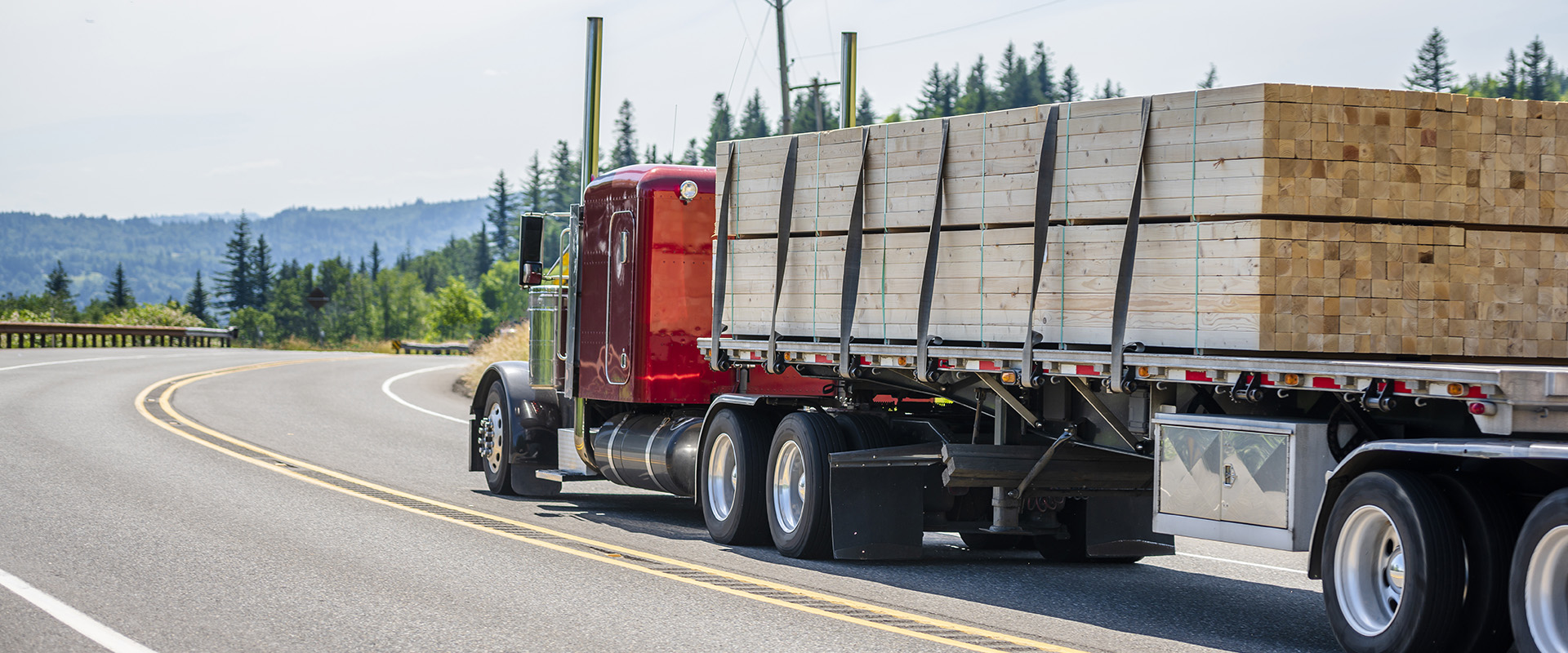
Supply chain stakeholders are no stranger to the $1 trillion infrastructure bill just passed in Congress. Shippers, manufacturers and transportation companies had already started to prepare for its impacts despite months of debates and updates to what would be included. One of the most anticipated spending boosts was to the building materials industry. ƒ
We spoke with Brittian Moore, Ryan Transportation’s Senior Director of Business Development, to learn about what building and construction materials shippers and manufacturers can expect from this historic bill.
How will the building materials industry be impacted by the infrastructure bill?
The infrastructure bill will affect every aspect of the building materials industry. With a huge boost in spending, and the vast majority of it going to domestic companies, demand is going to skyrocket for raw materials, finished products, transport of materials, staffing, construction labor and more. This spike in demand will lead to higher rates and less capacity. In an already chaotic supply chain, these high demands will worsen the bottlenecks felt throughout manufacturing and shipping processes.
Materials and Labor
Materials shortages have been a major issue across the world; not only due to the increased demand for goods but also due to a lack of sufficient staff to make, ship and deliver the goods. With additional spending toward infrastructure, there will be a huge spike in orders for building materials to complete the infrastructure projects. There will also be a need for high-paid construction workers to work on the projects. While this is great news on the surface and is much needed for general infrastructure improvements, this substantial influx in orders will be with companies that are already struggling to keep up with demand.
Additionally, the national labor shortage is already a significant problem in the supply chain. With high-paying construction jobs to be filled, there is a strong possibility many people will leave their supply chain industry jobs for those in construction, leading to an even worse staffing situation for shippers and manufacturers.
Shipping and Transportation
It goes without saying that higher demand means more materials that need to be moved on the road. Contributing to the labor problem is an estimated shortage of 80,000 truck drivers in the U.S., along with a shortage of trucks and truck maintenance parts. Higher demand plus a shortage of drivers means capacity will continue to tighten as it has over the last couple of years, and higher shipping rates will be inevitable as companies fight to find drivers to haul their orders.
There will also be an increase in the amount of construction happening across the country which could lead to more delays and longer than average route times. The impact of the physical construction will be felt especially during peak construction season, and likely won’t be limited to a specific area of the country because the goal is to spend evenly throughout every congressional district.
The Good News
Despite the barriers that will hit the building materials industry, the overall effects of the bill will be positive. The U.S. infrastructure has been in desperate need of substantial repair for many years. This bill will bring many long-term changes and benefits to the supply chain industry as a whole:
- Road and bridge repair, improving transit times and decreasing damage done to vehicles over time
- Rail and lock repair and expansion, leading to improved rail and barge operations
- Improvements to ports of entry and additional transit systems, easing supply chain congestion
- Construction demand will increase, creating jobs and boosting local economies
- Additional long-term funding for crucial infrastructure improvement and maintenance programs
Overall, the infrastructure bill will provide the time and resources needed to improve the long-neglected infrastructure in the U.S.
What can the building materials industry do to prepare for the infrastructure bill’s impacts?
The stress of the infrastructure bill may seem overwhelming, but there are a few key steps shippers and manufacturers can take to lessen the overall impacts.
1. Stay Competitive.
With an increase in sales, it will feel easy to go on autopilot. It’s important to stay competitive in the market wherever possible to help mitigate the potential impact to your bottom line. To meet demand, you may need to increase wages to reduce employee turnover and stay on top of production needs. Don’t be afraid to raise your own prices if it makes sense, and be sure to negotiate rates and reduce transportation costs wherever possible.
2. Increase Production Capacity.
You will almost certainly see an influx of orders and volume in anticipation of materials shortages and higher prices. You can start planning for higher volume and increasing production capacity now to mitigate the number of order bottlenecks.
3. Build Relationships with Brokers.
Perhaps the most important thing you can do is foster your relationship with your brokerage partners. Having a broker who knows your business can help you handle the spike in volume and lessen the impact of higher rates and lower capacity. Brokers have large networks of carriers and established industry connections to help you fill the gaps in supply and demand.
“We provide our customers with one dedicated representative who learns their business and acts as an extension of their transportation department.” – Brittian Moore
Ryan Transportation has been helping customers stay competitive in the industry for over 35 years. Each day, we focus on growing existing relationships and adding new relationships to mitigate market swings and keep our customers on track to meet and exceed their goals.
Our industry-leading TMS technology and constant innovation, combined with proven experience in the building materials industry, allow us to provide unique and customized solutions to our customers. The infrastructure bill will require shippers and manufacturers to operate under more demand than ever before. Ryan Transportation is ready to provide the support, bandwidth and network of more than 70,000 carriers it will take to maintain and grow your business.